Planetary Ball Mills
- Retsch - PM 100 - PM 200
- powerful and quick grinding down to nano range
- reproducible results due to energy and speed control
- suitable for long-term trials
Planetary Ball Mills are used wherever the highest degree of fineness is required. In addition to well-proven mixing and size reduction processes, these mills also meet all technical requirements for colloidal grinding and provide the energy input necessary for mechanical alloying.
The extremely high centrifugal forces of a planetary ball mill result in very high pulverization energy and therefore short grinding times.
The PM 100 is a convenient benchtop model with 1 grinding station and the PM 200 has 2 grinding stations.
Application Examples
alloys, bentonite, bones, carbon fibres, catalysts, cellulose, cement clinker, ceramics, charcoal, chemical products, clay minerals, coal, coke, compost, concrete, electronic scrap, fibres, glass, gypsum, hair, hydroxyapatite, iron ore, kaolin, limestone, metal oxides, minerals, ores, paints and lacquers, paper, pigments, plant materials, polymers, quartz, seeds, semi-precious stones, sewage sludge, slag, soils, tissue, tobacco, waste samples, wood, ...
Product Advantages
- powerful and quick grinding down to nano range
- reproducible results due to energy and speed control
- suitable for long-term trials
- 2 different grinding modes (dry and wet)
- optional pressure and temperature measuring system PM GrindControl
- wide range of materials for contamination free grinding
- Safety Slider for safe operation
- perfect stability on lab bench thanks to FFCS technology
- innovative counter weight and imbalance sensor for unsupervised operation
- comfortable parameter setting via display and ergonomic 1-button operation
- automatic grinding chamber ventilation
- 10 SOPs can be stored
- programmable starting time
- power failure backup ensures storage of remaining grinding time
- jars with O-type sealing for safe operation, pressure tight
Function Principle
The grinding jars are arranged eccentrically on the sun wheel of the planetary ball mill. The direction of movement of the sun wheel is opposite to that of the grinding jars in the ratio 1:-2.
The grinding balls in the grinding jars are subjected to superimposed rotational movements, the so-called Coriolis forces. The difference in speeds between the balls and grinding jars produces an interaction between frictional and impact forces, which releases high dynamic energies. The interplay between these forces produces the high and very effective degree of size reduction of the planetary ball mill
| PM 100 | PM 200 | |
| Applications | nano grinding, pulverizing, mixing, homogenizing, colloidal milling, mechanical alloying | |
| Fields of application | agriculture, biology, chemistry / plastics, construction materials, engineering / electronics, environment / recycling, geology / metallurgy, glass / ceramics, medicine / pharmaceuticals | |
| Feed material | soft, hard, brittle, fibrous – dry or wet | |
| Performance data | ||
| Feed size* | < 10 mm | < 4 mm |
| Final fineness* For colloidal grinding* | d90 < 1 µm d90 < 100 nm | d90 < 1 µm d90 < 100 nm |
| Batch/sample volume* with stacked grinding jars | max. 1 x 220 ml max. 2 x 20 ml | max. 2 x 50 ml – |
| No. of grinding stations | 1 | 2 |
| Suitable grinding jars „comfort” 12 ml / 25 ml / 50 ml / 80 ml 125 ml 250 ml / 500 ml | 1 or 2 1 1 | 2 2 – |
| Speed ratio | 1:-2 / 1:-1 | 1:-2 |
| Sun wheel speed | 100 – 650 min-1 | 100 – 650 min-1 |
| Effective sun wheel diameter | 141 mm | 157 mm |
| G-force** | 33 g | 37 g |
| Digital grinding time setting (hours:minutes:seconds) | 00:00:01 – 99:59:59 | 00:00:01 – 99:59:59 |
| Interval operation | with optional direction reversal | with optional direction reversal |
| Interval time | 00:00:01 – 99:59:59 | 00:00:01 – 99:59:59 |
| Pause time | 00:00:01 – 99:59:59 | 00:00:01 – 99:59:59 |
| Memory for Standard Operating Procedures (SOPs) | 10 | 10 |
| Measurement of energy input | • | • |
| Serial interface | • | • |
| Technical data | ||
| Drive power | 750 W | 750 W |
| W x H x D | 630 x 468 x 415 mm | 630 x 468 x 415 mm |
| Net weight | approx. 80 kg / approx. 86 kg | approx. 72 kg |
*depending on feed material and instrument configuration **(1 g = 9.81 m/s2)

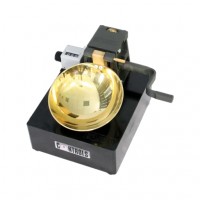
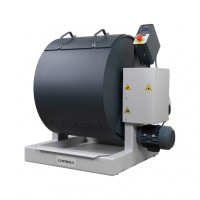
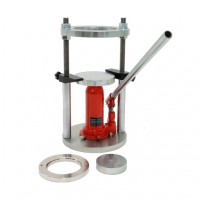
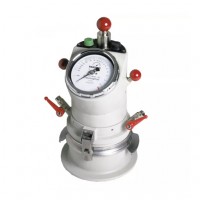
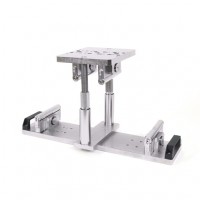
Do you have a question?
min 10 ch